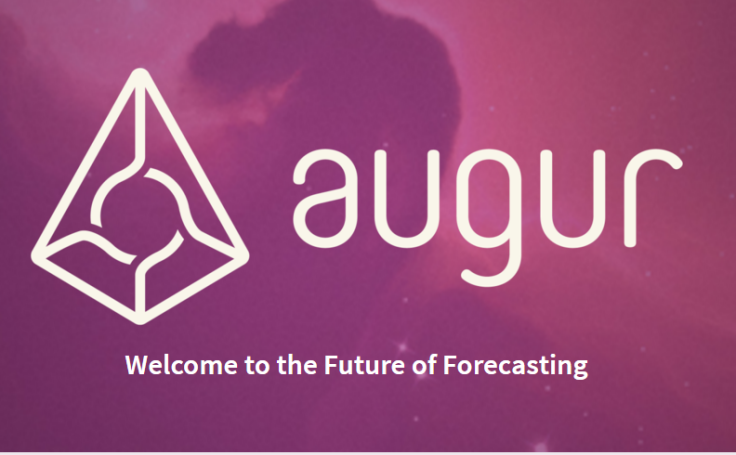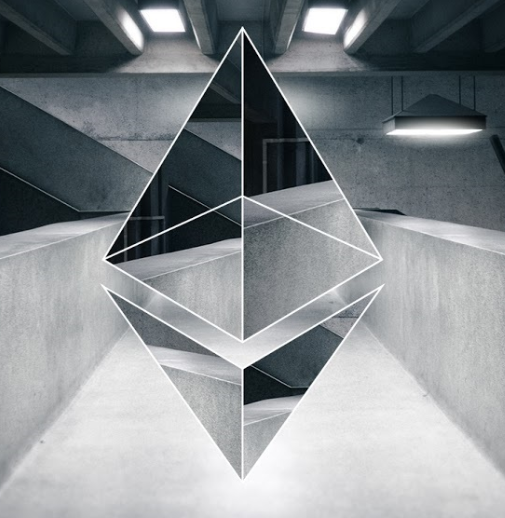Ethereum-powered Augur brings its beta to Microsoft Azure's blockchain cloud

Augur, the decentralised prediction market platform which was the first D-app running on Ethereum to make headlines, has released its beta and joined the Microsoft Azure BaaS enterprise cloud offering.
Prediction markets harness the wisdom of the crowd, and because they involve a large network of peers to aggregate opinion they fit well with decentralised systems managed by a distribution of nodes. This key innovation has seen Augur described as "Uber for knowledge", "wonderfully wiggy", or even a benevolent version of the Borg out of Star Trek.
Augur follows a now well-trodden path of gifted blockchain start-ups added to Microsoft Azure's Blockchain as a Service (BaaS) cloud; Ethereum itself was the first blockchain technology to join the cloud back in October of last year.
Blockchain as a Service
Tony Sakich, director of marketing, Augur, told IBTimes that being added to Microsoft Azure would invite a plethora of use cases for enterprise. "Businesses can use it to forecast launch dates, whether projects should be funded, any kind of key metric. It really gives enterprises a great way to have an internal version of Augur. They don't need to use the public version of Augur. It's something we have had a number of requests for prior to it being launched.
Sakich echoed all the other blockchain starts to have joined Azure who found it to be a smooth and easy ride. "It's been very smooth, very easy, which was kind of surprising."
As far as bringing Augur to enterprise users is concerned, Peronet Despeignes, SpecialOps, Augur pointed to a bigger picture: "Augur is potentially useful for anything involving uncertainty about the future," he said. "Anything involving decisions that have to be made based on the unknown - what does tomorrow hold, what does next week hold, next month, next year - in business, in international relations, what have you. That's one of the most fascinating things about the platform; that it's open-ended and potentially includes just about any topic that matters to a lot of people."
Augur beta
The Microsoft announcement has coincided with the release of Augur's beta which heralds a number of improvements. Sakich explained it has a whole new look and feel and is way faster to load, almost instant. "It's really like night and day. For our alpha the loading time was slow. Now it loads almost instantly, it might take five seconds to load.
"The other thing we added was the ability to create multiple-choice markets. In the alpha we only had binary yes or no markets. So it's now a little more sophisticated, there's more metrics for trading. There's also a new walk-through tutorial and in only a few clicks it tells you everything you need to know.
Despeignes added: "We try to make the experience as frictionless as possible to make it as easy as and quick as possible for people to do whatever they need to do, make their trades, execute their trades, and wrap them up."

The beta version of Augur is still not using cryptocurrency yet; it's still in test mode while additional features are added before future security audits ensure everything is bullet-proof before it goes completely live. Regarding the making of real markets, the Augur team was encouraged by recent positive remarks on blockchain coming from the direction of the Commodity Futures Trading Commission, which oversees derivatives markets and anything that falls within the remit of the Commodity Exchange Act.
CFTC comments
Despeignes said: "The CFTC has made some very innovation-friendly remarks which basically affirm a lot of our perspective on this. There should be some breathing room allowed for new innovation to take place. This is a new paradigm and it's unclear how and if the laws and regulations will apply but the public remarks that the CFTC representatives mentioned are reassuring."
In a hearing last month on how blockchain technology could impact derivatives markets, CFTC chairman Timothy Massad said: "I think I can speak for my fellow commissioners in saying, you know, we want to make sure we're at least not standing in the way of new technological developments, and potentially encouraging technological developments that can be beneficial."
Commissioner J Christopher Giancarlo reportedly said in opening remarks: "Open ledgers may also make possible new 'smart' securities and derivatives that will revolutionise operational and transactional efficiency," Giancarlo continued. "They may help reduce some of the enormous cost of the increased financial system infrastructure required by new laws and regulations, including Dodd-Frank."
Reputation
Augur uses crypto tokens called Reputation (REP) to incentivise reporters on its network. These tokens were distributed among people who took part in a 45-day crowdsale which ended in October last years and raised $5.3m. So it's not a reputation system based on hand-waving: this global, decentralized community of referees on the network who bought into the crowdsale – called "reporters" - put their money where their mouth is.
Despeignes explained that reputation token holders are entitled to a proportional percentage of 50% of the trading fees of all markets on the platform. "If you have roughly 1% of reputation tokens then you get basically around 1% of the 50% of all trading fees distributed to all reputation token holders.
"The other 50% is given to the person who creates the market, who provides the initial liquidity to get the market going, defines the question and that sort of thing.
Reporters are randomly selected on each prediction market and to earn they want to be aligned with general consensus. So if they stick out like a sore thumb and deviate from the consensus in a significant number of decisions, some token value is redistributed to reporters more tightly aligned with the consensus.
Revolutionary paradigm
"Depending on how far you are from the consensus decision on a particular prediction market, you can lose up to 20% of your tokens every voting round, which I think will be around every two months or so," said Despeignes.
"It's a free market economic system that can function on its own devices through a web of incentives and disincentives that get everyone to behave in a way that doesn't undermine the system's integrity. It's a revolutionary paradigm that doesn't need central authority or custodians: at no point does any one person control somebody else's funds. That's controlled by algorithms, by smart contracts.
"We think regulators will like that Augur doesn't have these issues of custodial abuse, principal-agent problems, counterparty risk – basically, of humans behaving badly -- problems that have bedevilled and undermined the operation of financial markets since the start of time."
© Copyright IBTimes 2025. All rights reserved.






















